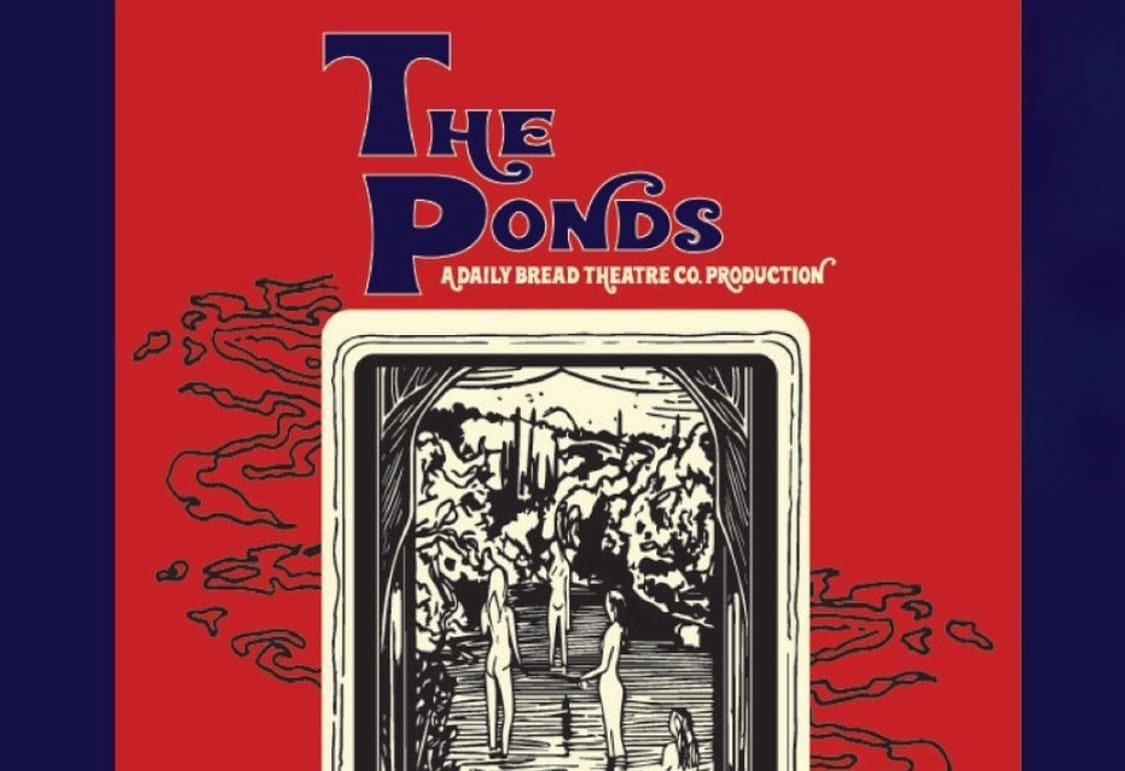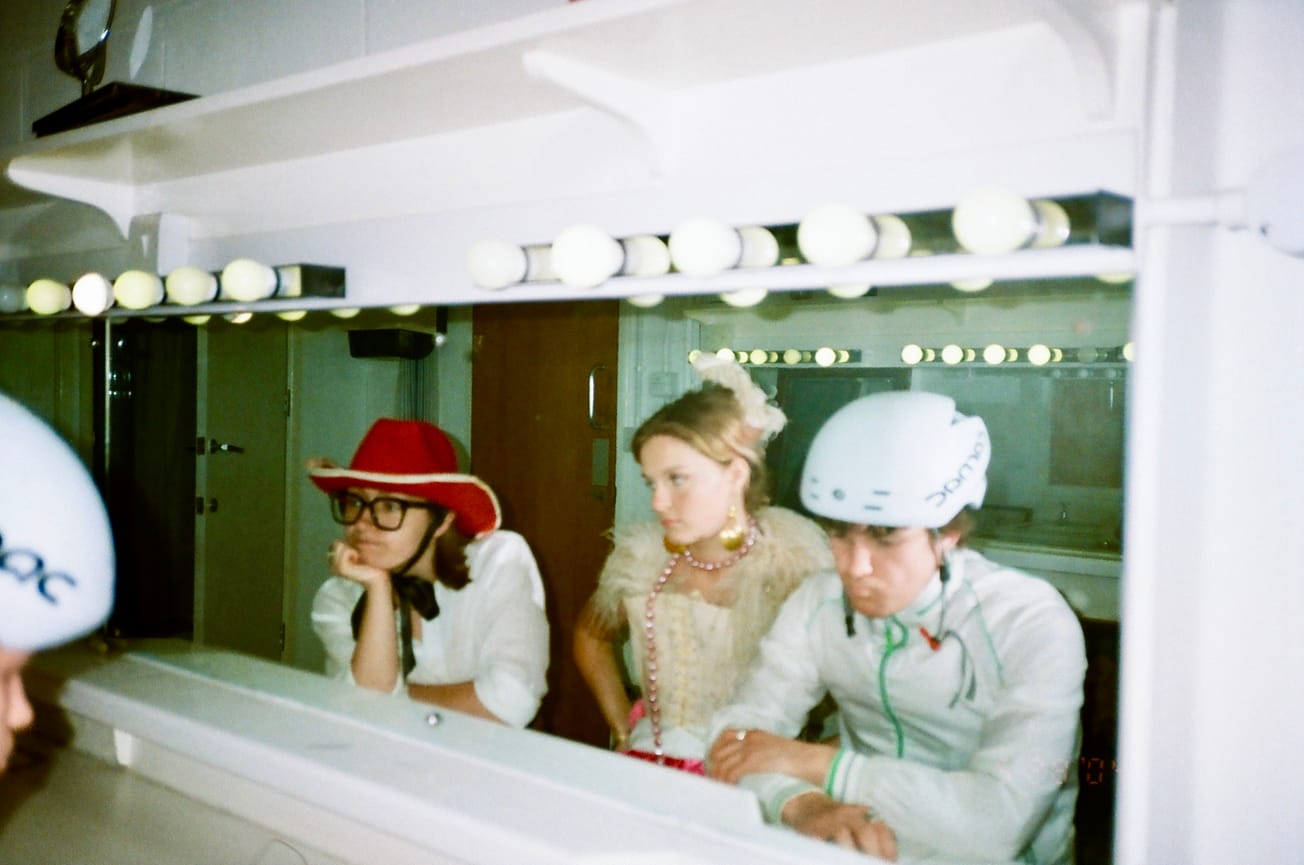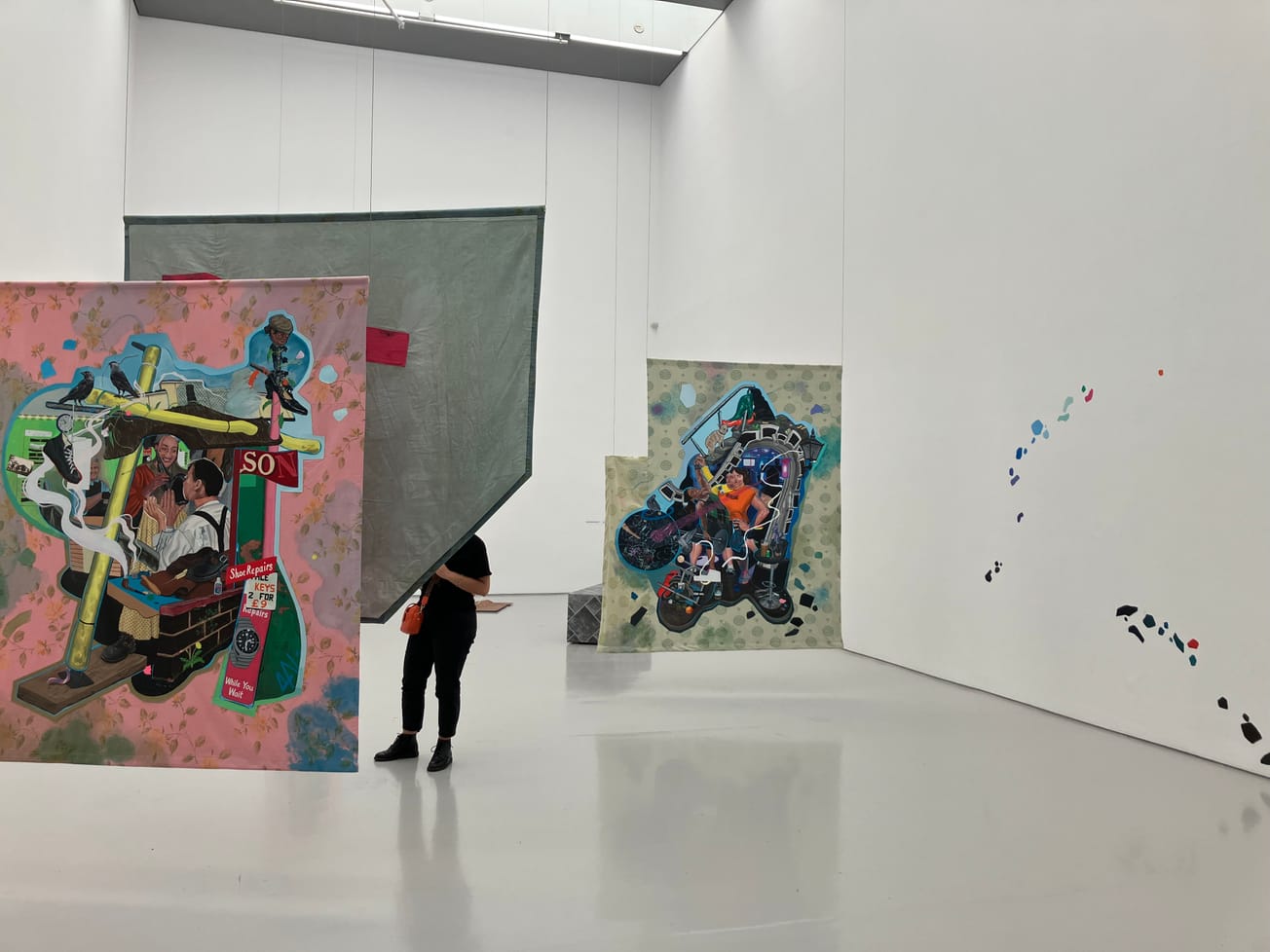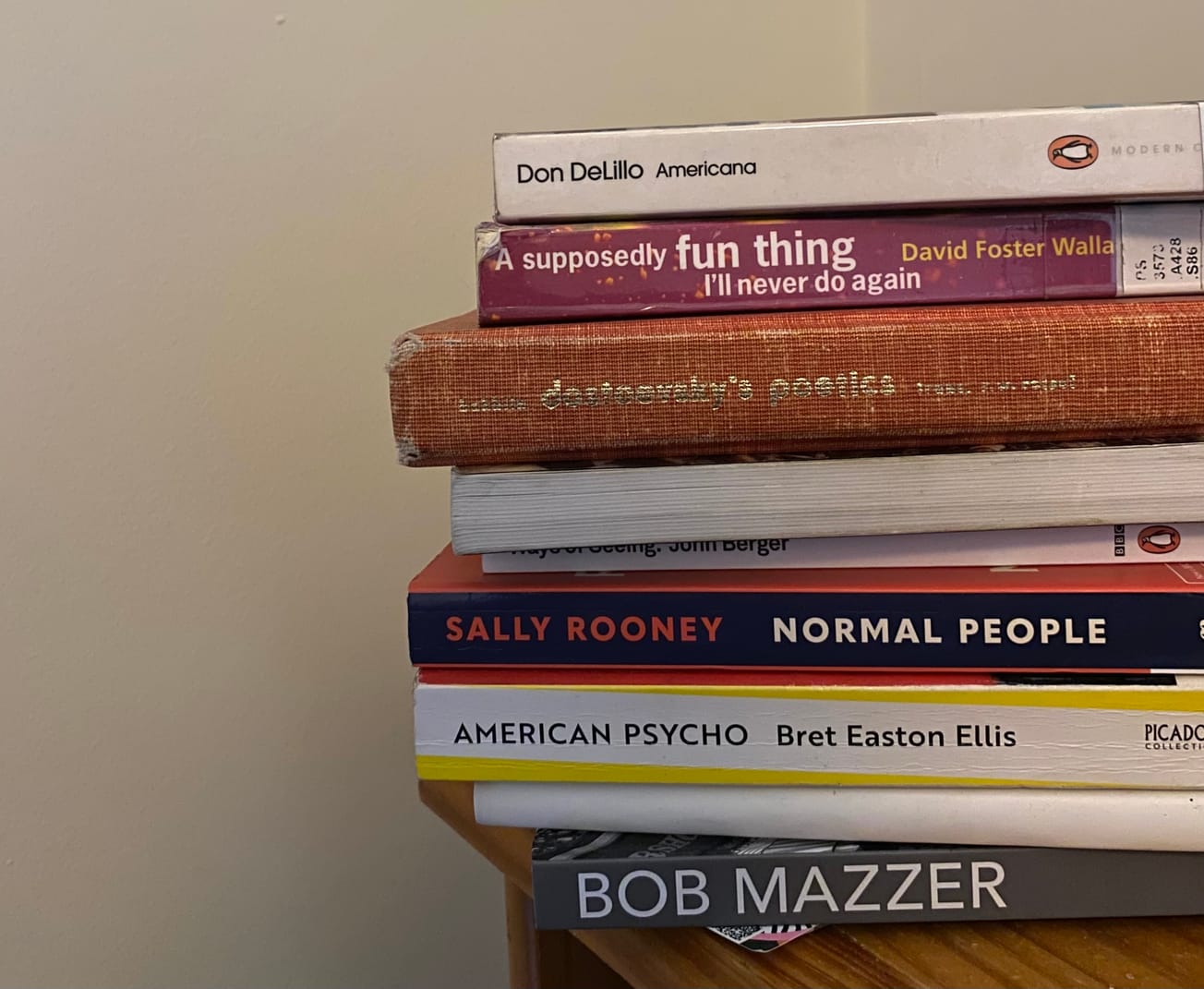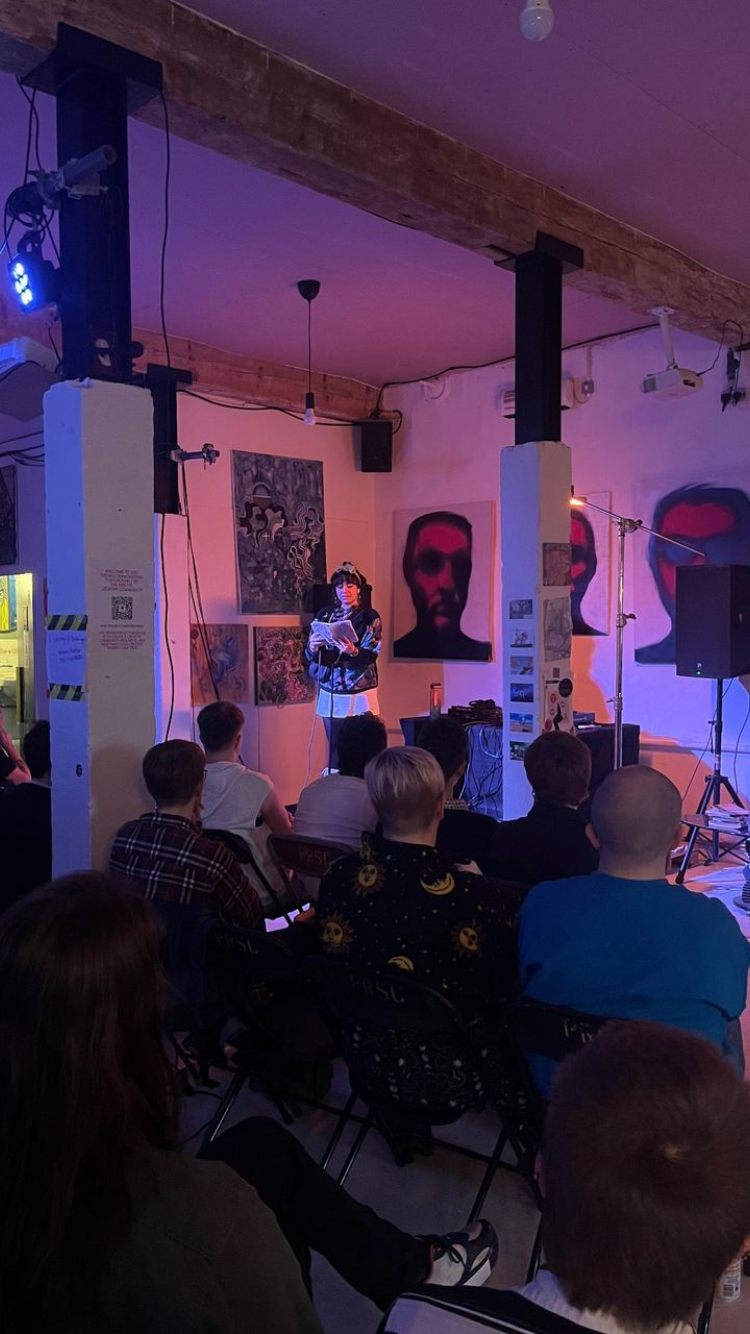By Oscar Coupal, Sport Editor
Following on from their debut sellout production of The Flower Shop last winter, Daily Bread Theatre Company returns with a marvellously enticing dark comedy, ‘The Ponds’. The all-female student theatre collective has yet again delivered on creating an original piece of work centred on the female experience.
The play is set around a women-only bathing pond - based on the Hampstead Heath ponds in West London - and the interactions between five central characters. The idyllic bathing ponds represent tranquillity, a haven away from the turbulence of everyday life. One day, a dead body is found drifting amongst the reeds of the ponds – a man’s body. Rather than transitioning into a murder mystery narrative, the production is a black comedy that explores female fantasy and spaces, and what happens when they are disturbed. Peggy Pollard, the play’s writer and co-director/executive producer, conveys this through her scintillating set of characters and witty writing.
At the beginning of the play, we are introduced to Sandy, played by Izzy Long, who is the police officer leading the investigation into the origins of the man’s death. Sandy trudges down through the audience, commanding the attention of the onlookers towards the beautiful mural of the ponds, basked in a cold blue light from overhead.

The use of sound and lighting by Ava Zarate and Sam Phillips reminded me somewhat of Lucy Prebble’s ‘The Effect’, a play which was recently performed at the National Theatre. Both plays used a cold blue lighting accompanied by the sound of an increasingly quickening heartbeat. In ‘The Ponds’, the engrossing quality of this noise had a distinct visceral impact; I found my heart racing at a similar pace and my concentration heightened, immersing me as an audience member into the events of the play.
Alongside the excellent use of lighting, it is imperative to commend Daisy Day-Fawcett, the mural artist, on her stunning work designing the backdrop of the play. This was full of intricate details and luminous silhouettes that enhanced the escapist quality of the ponds.
Through Sandy’s concise but comedic investigation we are introduced to Anna, played by Bethan Owen, and Cath, played by Lily walker. Anna comes across as excitable and youthful whereas Cath is older and shy, despite regularly breaking out into bouts of her poetry. Anna is used to introduce the theme of underlying insecurity that affects all the characters in the production. Her touching upon romantic difficulties and the questioning of her sexuality are delivered masterfully by Owens, who maintains a charming relatability that endears her character to the audience.
Walker’s incredible comedic timing and crowd control make Cath such an engageable character for the audience - she had everyone laughing with her bizarre outfits and poetry readings. However, in line with the theme of underlying female insecurity, Walker also subtly balances this portrayal with glimpses of a more fragile and delicate Cath, alluding to her growing sense of isolation with age.
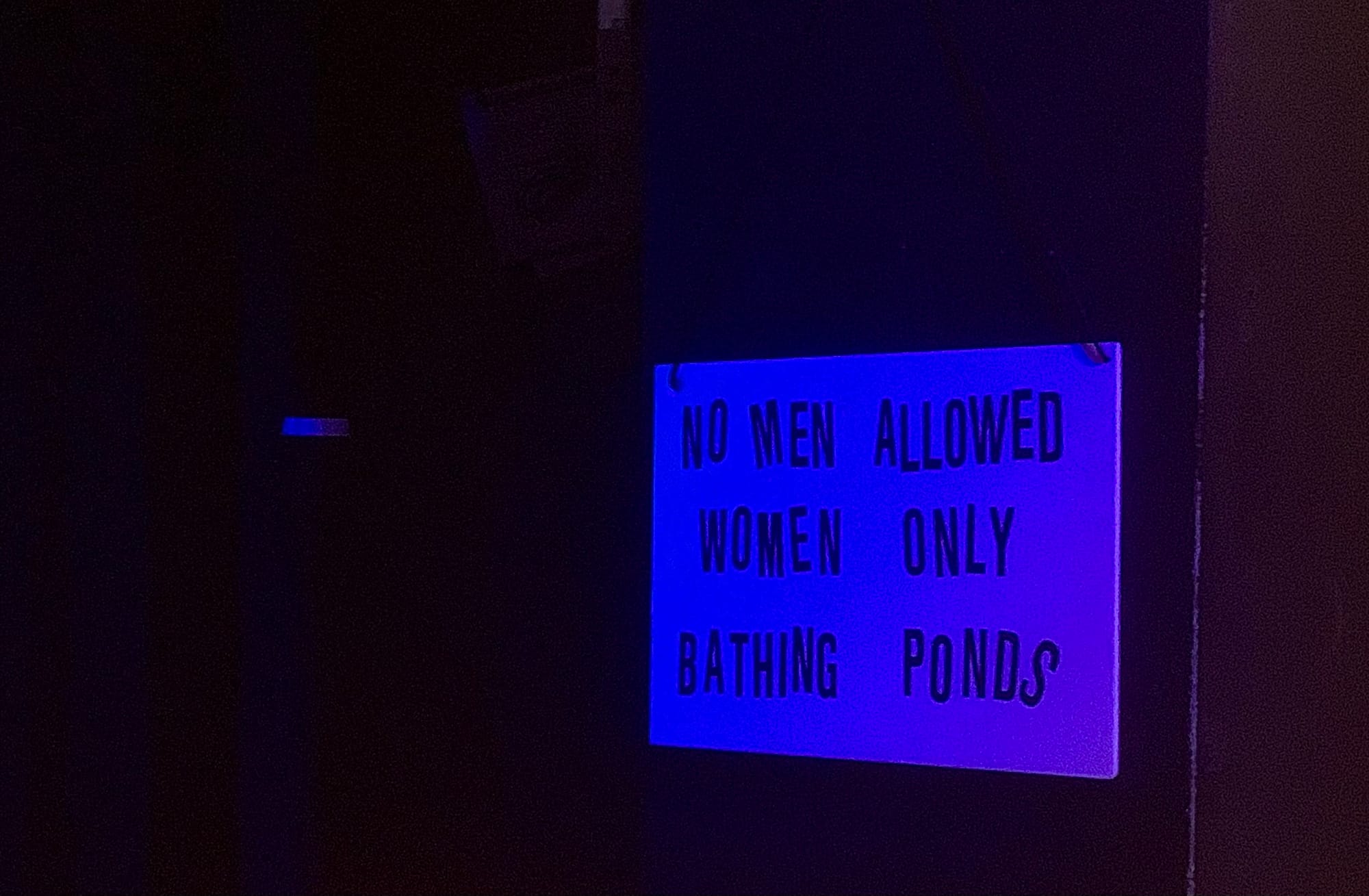
As Sandy’s investigation continues we are introduced to two new characters: Bea, played by Alice Bebber, and Dot, played by Evie Cooper. Bea is characterised by her flamboyant clothing, courtesy of costume designer Ellanor Haskew, and her eccentric personality. As the play progresses, it becomes more obvious that Bea’s confident façade clashes with her insecurities around her own understanding of feminism. Consequently, Bea hilariously overcompensates, repeatedly stating she is in her ‘divine feminine era’ and telling Sandy she only swims when menstruating as she feels it is ‘empowering’.
We are also introduced to the frightening woman who lives in the grand house behind the pond, Dot. Cooper expertly depicts Dot as menacing and unnerving, emphasised by her costume of wellington boots, a turtleneck jumper, and slicked back hair, a combination that reminded me somewhat of Roald Dahl’s imposing character, ‘Ms Trunchbull’. Cooper did a remarkable job at perfecting the cold exterior of Dot, isolating her from the comedic backdrop and heightening the importance of the character as a result.
Sandy’s investigation concludes with her shutting down the ponds, deeming it no longer safe. The closure of the ponds unites the characters, each one of them realising how much the women-only space meant to them. Several months later, the group of characters reconnect, discuss how they have tackled the insecurities they faced and rejoice in each other’s company. Eliza Kilburn, the co-director/executive director, spoke on how ‘female-only spaces can form without men and can allow women to grow’, which is truly reflected in the emotional development of the characters and the intimacy they have as a result of their mutually shared experiences.

The play was a resounding success with its audience: one member commented that the play covered ‘lots of interesting details about female spaces and how difficult it can be when people have different relationships to feminism and safety […] Every choice [of perspective] was amazingly thought through’.
In an exclusive to Epigram, Pollard told us that we can expect a more developed version of the play next April, including changes to design, writing, and script. The production’s new edition will be performed at The Wardrobe Theatre in Bristol – a much larger venue.
Another audience member stated it was a ‘perfect fusion of comedy and meaning’, which I couldn’t agree with more. It was interesting, topical, funny, immersive; all you could ask for from a play.
Featured image: Instagram / @dailybreadtheatre
Will you be going to see the next staging of 'The Ponds'?

